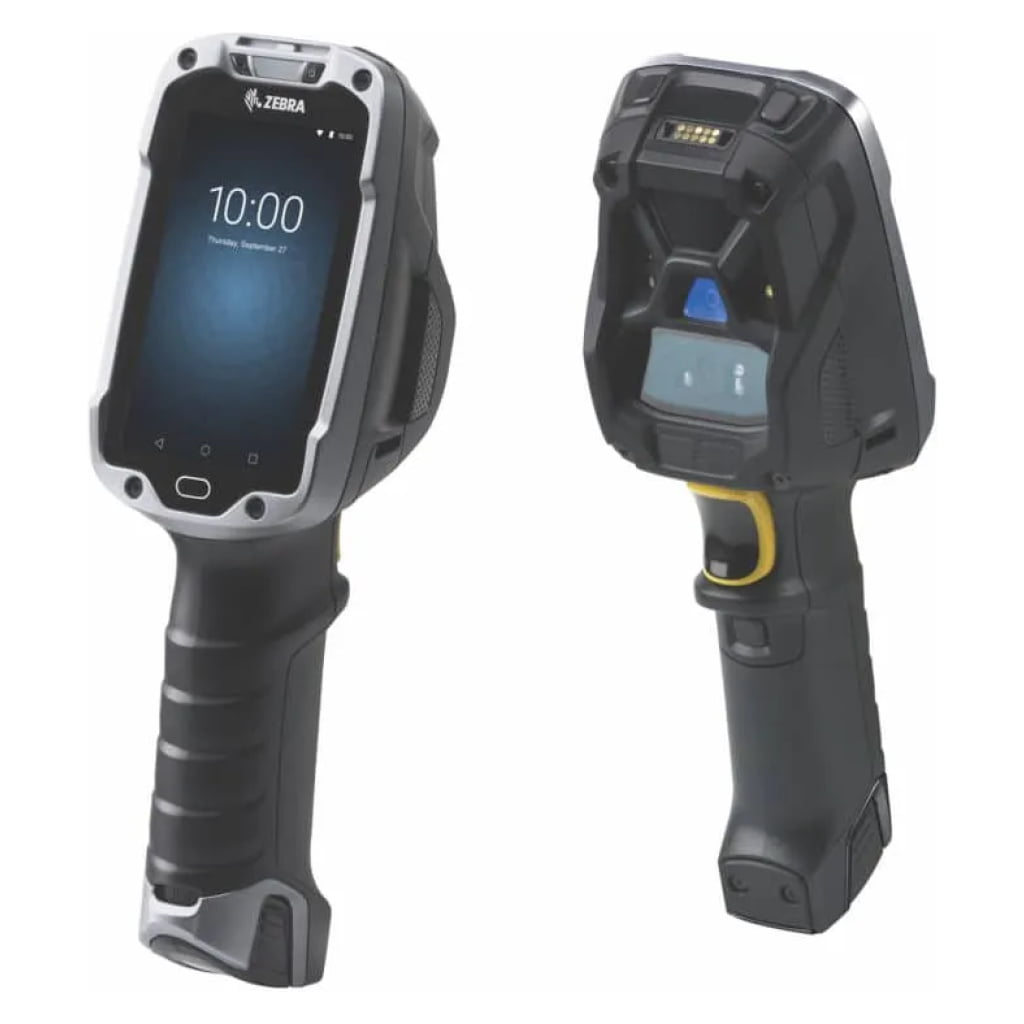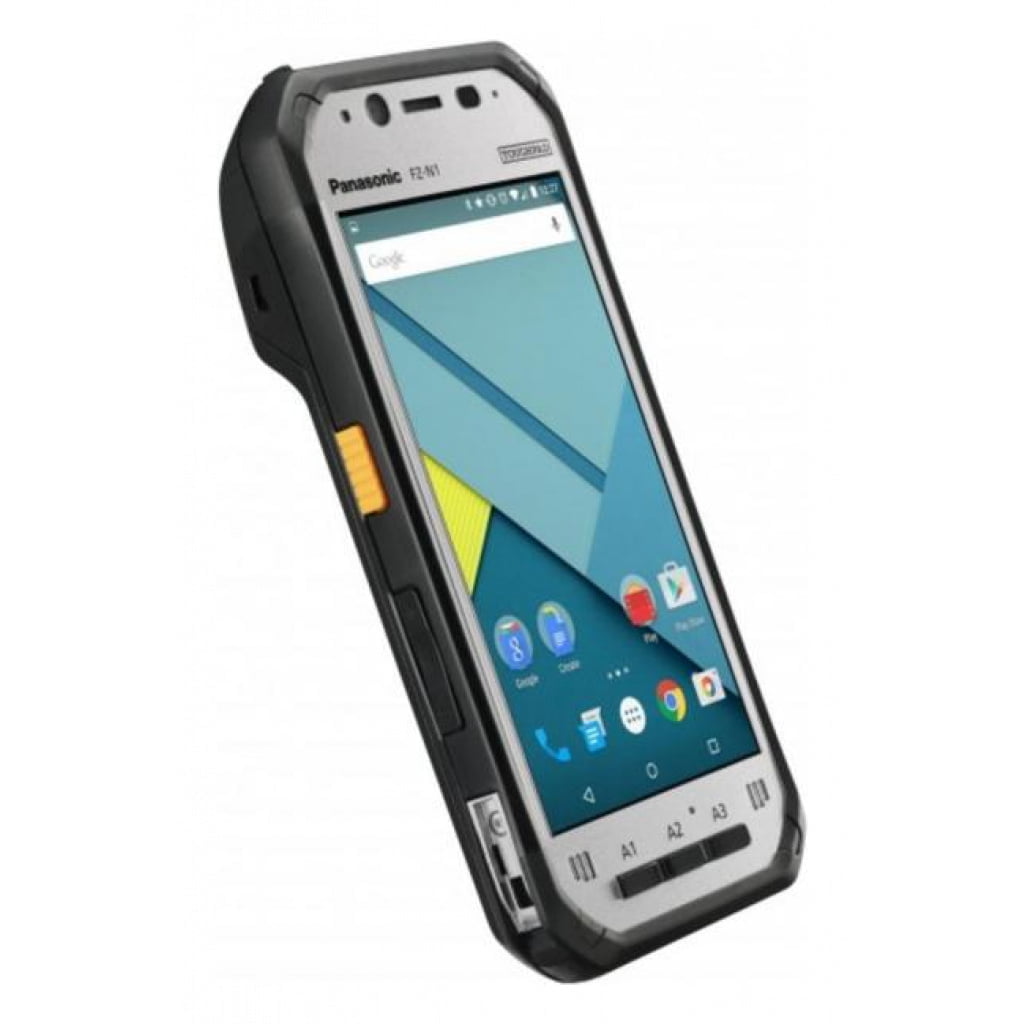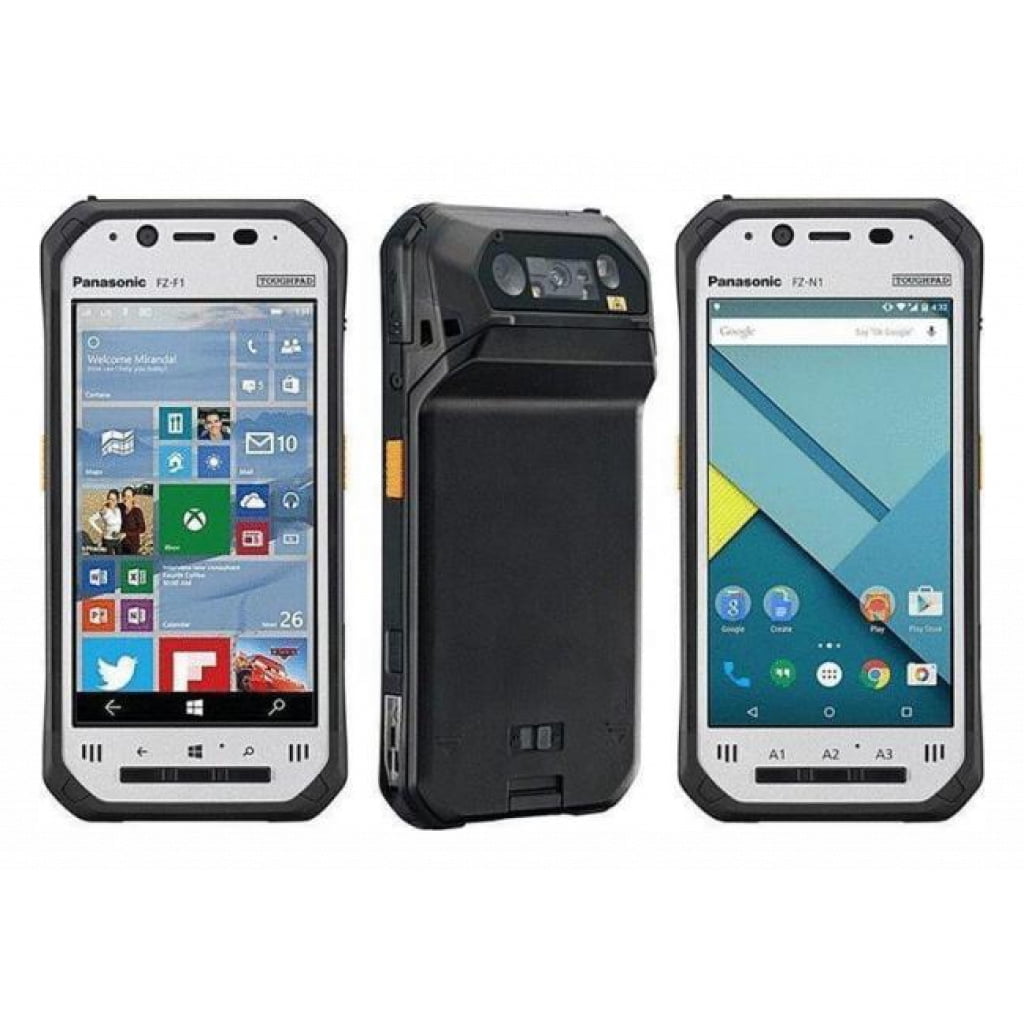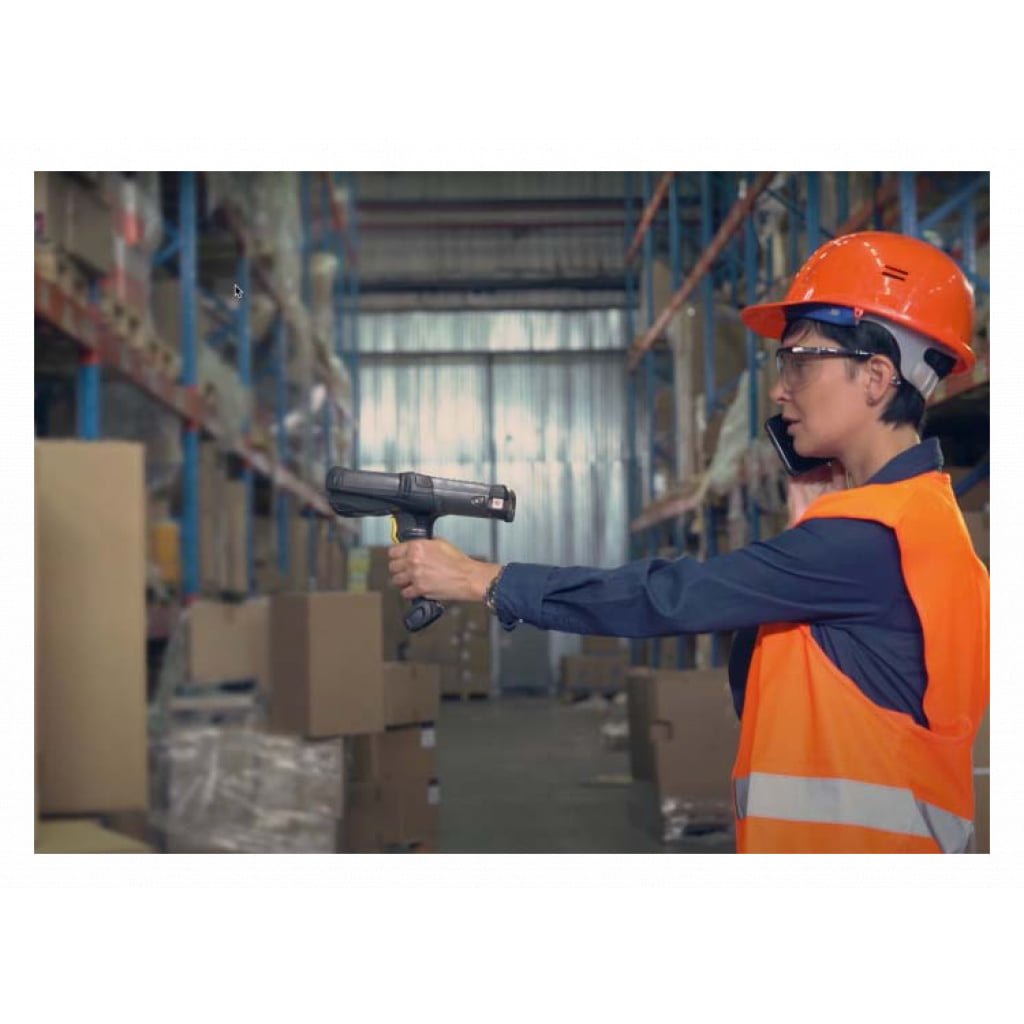In the bustling world of retail and inventory management, the difference between chaos and order often boils down to the technology at your fingertips. Enter the barcode scanner, a seemingly simple device that revolutionises efficiency and accuracy in tracking products. While some might view it as just another tool in the arsenal of business operations, its impact is profound, streamlining processes that once consumed untold hours of manual labour. This blog post peels back the layers of how barcode scanners have become indispensable in modern commerce, from small businesses to sprawling warehouses, highlighting not just their functionality but also the transformative power they wield in various sectors.
Barcode scanners play a pivotal role in modern inventory and data management systems. They read and transmit data from barcodes to computers, streamlining operations across various industries. There are two primary categories: 1D scanners, which read traditional linear barcodes, and 2D scanners, capable of interpreting complex patterns like QR codes. Each type serves distinct purposes, with 1D models prevalent in retail settings for product identification and pricing. In contrast, 2D scanners find utility in healthcare for patient tracking due to their ability to store more information.
Specialised devices such as laser scanners offer precision in reading barcodes at a distance. Imager scanners capture images of the barcode, decoding both 1D and 2D codes. Omnidirectional scanners allow barcodes to be read from any angle, enhancing efficiency in fast-paced environments like checkout lines.

Industrial barcode scanners distinguish themselves through rugged design and durability. These features ensure they can survive the demanding conditions of manufacturing floors and distribution centres. Unlike their standard counterparts, these devices boast extended range scanning capabilities. This feature is crucial in large warehouses where items might be stored high on shelves or spread out over extensive areas.
Another significant advantage lies in their integration capabilities with industrial software systems. This seamless connectivity enables real-time inventory tracking and supply chain management, essential for maintaining operational efficiency in industrial settings.
In industrial environments, the durability and reliability of equipment cannot be overstated. Barcode scanners must withstand harsh conditions including frequent drops, exposure to dust, and moisture contact. Their ability to endure these challenges translates into cost savings over time by reducing the need for frequent replacements.
Moreover, reliability plays a critical role in continuous operation settings. Any downtime caused by equipment failure can lead to significant losses. Therefore, investing in high-quality industrial barcode scanners ensures uninterrupted workflow, maintaining productivity levels.
Barcode scanners play a crucial role in automating the inventory tracking process. They eliminate manual data entry, cutting down on the errors that can come with it. This automation allows for real-time updates to inventory levels, ensuring that stock quantities are always current.
The ability to easily update inventory levels in real-time keeps businesses agile. It helps them respond quickly to demand changes.
By reducing human error, barcode technology significantly enhances the accuracy of inventory counts. This precision is critical for reliable business analytics and forecasting. Accurate data supports better stock visibility and control, making it easier to manage resources effectively.

Scanners expedite the processing of shipments, boosting workflow efficiency. The immediate capture of data ensures that inventory management systems stay updated. This rapid processing directly impacts customer satisfaction by facilitating faster order fulfilment.
Barcode systems provide instant updates to inventory and tracking systems. Real-time data is invaluable for operational decision-making, offering insights that help refine supply chain management strategies. Having up-to-date information enhances the ability to respond to market demands promptly.
Scanners contribute significantly to optimizing warehouse layout by keeping track of product locations. They reduce instances of misplaced items and improve retrieval times. This efficiency boosts warehouse space utilisation and overall operational performance.
Barcode scanners ensure accuracy during order picking and packing, reducing time spent on verifying orders. They streamline the packing process, cutting down dispatch times. These improvements lead to more efficient operations and higher customer satisfaction levels.
Industrial barcode scanners significantly accelerate the pace of operations in logistics and beyond. They outperform manual entry, especially where high volumes of goods are processed. This speed is crucial in reducing queue times, whether for incoming shipments or at checkout points. The result is a noticeable boost in operational throughput, enhancing overall efficiency.
By automating the scanning process, companies see a drastic cut in the need for manual data entry. This not only lowers labour costs but also diminishes the chance of human error. Fewer mistakes mean less time and money spent on correcting them. Employees can redirect their focus towards strategic tasks, thereby increasing productivity.
Accurate inventory tracking through barcode scanning helps pinpoint discrepancies and potential thefts early on. It plays a pivotal role in maintaining correct stock levels and reducing shrinkage. The financial upside of minimising these losses cannot be overstated, as it directly contributes to better inventory control.
The automation enabled by industrial barcode scanners drives down operational expenses. From reduced labour costs to fewer errors needing correction, the savings are substantial. Moreover, these systems easily scale with the business, ensuring that cost efficiency is maintained even as operations expand.
Barcode scanners boast remarkable accuracy in data capture, feeding precise information into management systems. This reduces discrepancies and enhances data quality significantly. Accurate data lays the groundwork for effective analytics and informed decision-making.
In today’s complex supply chains, tracking goods from production to delivery is essential for accountability and quality control. Barcode technology enables detailed traceability, bolstering regulatory compliance and building customer trust. The benefits extend far beyond logistics, impacting every step of the supply chain.
Industrial barcode scanners boast rugged designs that endure the rigours of harsh environments. They are built to resist dust, moisture, and extreme temperatures. This resilience ensures uninterrupted operations in demanding settings.
Manufacturers often test these devices against falls onto concrete or exposure to water jets. Such tests confirm their readiness for industrial use. Users can rely on these scanners in warehouses, manufacturing plants, and outdoor work sites. The durability of these devices minimizes the risk of operational downtime due to equipment failure.
Industrial barcode scanners stand out for their long-term usability. Their construction anticipates years of service without significant degradation in performance. This longevity is a key factor in their cost-effectiveness.
Investing in high-quality scanners translates into lower maintenance needs over time. Companies benefit from reduced expenses related to repairs or replacements. Moreover, the reliability of these scanners supports critical industrial operations where precision and uptime are paramount.
They provide consistent performance despite frequent use or exposure to adverse conditions. This reliability ensures that businesses can maintain high levels of efficiency and productivity.
Zebra stands out as a top manufacturer of industrial barcode scanners. They offer a diverse array of models tailored for various industrial needs. Their products are well-known for durability, reliability, and incorporating advanced technology.

The Zebra DS3600 series exemplifies rugged design, long-range scanning capabilities, and swift data capture. These models fit perfectly in different industrial settings thanks to their robustness. They also boast excellent connectivity options, ensuring seamless integration with existing systems.
Zebra scanners significantly boost efficiency and accuracy in logistics operations. They thrive in harsh conditions, guaranteeing dependability. The real-time data capture feature is crucial for managing inventory and tracking shipments, enhancing operational reliability following the section on enhanced durability.
Honeywell emerges as another significant contender in the market for industrial barcode scanners. Their product lineup is designed for tough industrial applications, focusing on ergonomic design and user-friendly features. This approach underscores Honeywell’s commitment to combining performance with ease of use.
The Honeywell Granit series is renowned for its durability, superior scanning performance, and thoughtful design centred around the user. These scanners adapt effortlessly to various industrial demands. Their wireless connectivity and extended battery life ensure uninterrupted operation, vital for demanding work environments.
Utilizing Honeywell scanners in logistics leads to remarkable improvements in efficiency. These devices stand up well under extreme conditions, maintaining reliable performance. Their impact extends to inventory management and customer service, making them invaluable tools in modern logistics operations.
The integration of Zebra barcode scanners within a large warehouse setting required meticulous planning. Key considerations included ensuring compatibility with the existing IT infrastructure. The selection of Zebra as the vendor was pivotal, given their proven track record in scalability and support. The planning phase involved rigorous testing to ensure seamless implementation.
Post-implementation, the warehouse witnessed significant improvements in operational efficiency and data accuracy. Businesses across sectors have seen similar benefits, with barcode technology drastically reducing manual errors. This has had a measurable impact on productivity, streamlining processes and enhancing overall performance.
Specific metrics revealed notable enhancements in inventory accuracy, with a marked reduction in order fulfilment times. The long-term financial advantages were clear, with optimised inventory management leading to substantial cost savings. Several case studies corroborate the impressive ROI achieved through advanced inventory tracking systems.
Implementing Honeywell barcode scanners in a manufacturing plant streamlined operations significantly. The process involved an initial assessment to ensure that the new system would integrate smoothly with existing workflows. Honeywell’s expertise was crucial for a successful rollout, providing both hardware and software solutions tailored to the plant’s specific needs.
The adoption of Honeywell’s technology transformed inventory management within the manufacturing plant. It offered unparalleled visibility and control over stock levels, effectively minimizing instances of overstocking and stockouts. Order fulfilment became more accurate and faster, directly impacting customer satisfaction positively.
The financial metrics post-adoption painted a compelling picture of efficiency gains. There was a tangible improvement in inventory management costs, alongside quicker order processing times. These factors contributed to a robust return on investment, underscoring the value of integrating sophisticated barcode scanning solutions.
The environment where a barcode scanner operates significantly impacts its performance. For indoor use, standard scanners suffice, but outdoor or extreme temperature conditions necessitate rugged devices. These environments demand equipment that can withstand harsh conditions without failing.
Scanning distance and the material of the item being scanned are crucial. Reflective surfaces or curved items may require advanced imaging technology for accurate scanning. It’s essential to choose a scanner that matches these requirements.
Compatibility with existing software and hardware systems cannot be overlooked. Ensuring seamless integration prevents additional costs and operational delays. This step is vital for maintaining efficiency in logistics operations.
When comparing barcode scanners, durability stands out as a key factor for logistics applications. Devices must endure frequent use and accidental drops. Scan speed and ease of use are equally important, ensuring quick processing times and minimal training for staff.
Businesses must balance cost against performance. High-end scanners offer superior durability and faster scanning but at a higher price point. The decision should reflect the business’s specific needs and budget constraints.
Total cost of ownership includes not just the purchase price but also maintenance and support over the scanner’s lifespan. Considering these factors helps businesses make informed decisions that align with their long-term financial planning.
Conducting field tests in the intended environment is advisable to assess performance accurately. This approach ensures the selected scanner meets all operational demands without compromise.
Ergonomic design and positive user feedback indicate a device that will be comfortable and efficient to use over extended periods. These aspects should not be underestimated as they contribute significantly to user satisfaction and productivity.
The value of warranty and support services is paramount in the evaluation process. Comprehensive support minimises downtime, while an extensive warranty offers peace of mind regarding future repairs or replacements.
Recent advancements have significantly reshaped barcode scanning technology. One notable innovation is the integration of augmented reality (AR). This allows users to capture barcodes through AR glasses, streamlining processes in logistics and inventory management.
Scanners now boast improved connectivity options, including 5G and Wi-Fi 6. These enhancements ensure faster data transfer speeds and more reliable connections across vast warehouse spaces. Innovations aimed at increasing scanning speed and accuracy are also on the rise. They reduce errors and boost efficiency in logistics operations.
Artificial Intelligence (AI) has revolutionised how data from barcode scans is analysed. It enables predictive inventory management, forecasting demand with high precision. This optimisation leads to significant cost savings and reduced waste for businesses.
The Internet of Things (IoT) plays a crucial role in creating smarter, connected warehouses. It enables real-time tracking of goods, enhancing visibility throughout the supply chain. The combination of AI and IoT holds the potential to automate and optimise logistics processes further, making them more efficient than ever before.
Looking ahead, the integration of blockchain technology into barcode scanners could offer enhanced security and traceability for supply chains. This would safeguard against counterfeit goods and ensure compliance with global standards.
The future may also see fully autonomous drones and robots equipped with barcode scanners becoming commonplace in warehouses. These technologies promise to automate inventory management, making it faster and more accurate. There’s an ongoing trend towards developing scanners that offer greater durability and flexibility. Such features are essential to meet the diverse needs of various industries, from retail to manufacturing.

Exploring the evolution and utility of industrial barcode scanners reveals their indispensable role in streamlining logistics operations. From understanding the basics to examining future trends, it’s clear that investing in the right technology—be it Zebra, Honeywell, or another leading brand—can significantly enhance your business’s efficiency and durability. Real-world applications demonstrate the transformative impact of these tools across various sectors, underscoring their value in today’s fast-paced market.
Choosing the appropriate barcode scanner for your logistics needs requires careful consideration of your specific requirements and an eye towards emerging technologies. As you navigate this decision-making process, remember that the right investment not only optimises your operations but also positions your business for future growth. Start exploring your options today and take a step towards operational excellence. Ready to revolutionise your logistics? Let’s get scanning.
Industrial barcode scanners are robust devices designed for the demanding environments of logistics and manufacturing, offering high durability and efficiency in scanning.
Barcode scanners streamline inventory management, enhance tracking accuracy, and improve overall operational efficiency in logistics.
Durability ensures that scanners can withstand harsh conditions, such as drops, dust, and moisture, common in industrial settings, reducing replacement costs.
Zebra and Honeywell are recognised leaders, known for their innovative and reliable barcode scanning solutions.
Consider factors like scanning distance, environment (industrial or office), connectivity options (wireless or wired), and compatibility with your existing systems.

Ulrik is an industry veteran with over two decades of expertise working with rugged computers and mobile barcode scanners. Brands include Panasonic, DELL, Getac, Zebra, and Honeywell/Intermec. He is known for his commitment to delivering products and solutions that increase operational efficiency. Dedicated to following new market trends and client satisfaction, Ulrik is a trusted advisor where rugged computers and mobile barcode scanners must be deployed.

Micro Nordic was founded in 2004 with the objective of offering customers fast, reliable and cost-efficient Rugged Mobile Product Solutions. We specialize in delivering current, End-of-Life and hard to find laptops, tablets and barcode scanners from leading manufacturers, such as PANASONIC, GETAC, DELL, ZEBRA & HONEYWELL.
We operate globally and can deliver bespoke turnkey solutions based on your requirements.
Micro Nordic ApS
c/o a. Hartrodt
11411 NW 107th Street
Suite 6
33178 Miami
USA